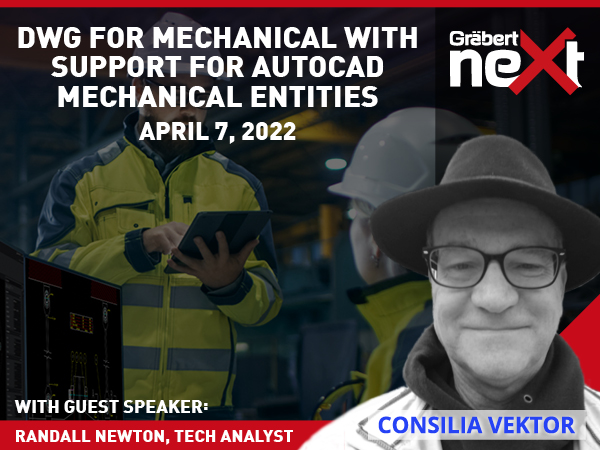Randall Newton Seeks a Strategic Path through the Ever-Changing World of Technology

Randall Newton is the principal analyst at Consilia Vektor, which offers design industry research, business consulting, and strategic marketing content. “Consilia is Latin for ‘wise advice’; Vektor is Danish for vector. I think of Consilia Vektor as a synonym for Strategic Path,” he explained.
Mr. Newton takes on a wide range of writing projects for his clients. “My work today is done mostly for vendors or for Digital Engineering magazine (DE), where I get to continue to be an engineering technology journalist. Most of my work for DE is covering trends. I’ve reported on design for additive manufacturing, 3D printing, the rise of the GPU as a general-purpose computing environment, blockchain technology for engineering, and other topics important to engineering and manufacturing. Until the COVID lockdown, I attended trade shows regularly, which is a great way to keep up with industry trends.”
Meet Randall Newton at the online CAD event Graebert neXt
Mr. Newton will also be the guest speaker for a 30-minute technical keynote at the Graebert neXt online event on April 7, 2022. Register now to save your spot for “DWG for Mechanical: 2D drawings with support for AutoCAD Mechanical entities,” plus other keynote sessions including “DWG for BIM: Smarter CAD drawings for your BIM projects,” “Cloud CAD & Mobile CAD in DWG: What is the Digital Transformation really improving?” and “What’s Next for 2D/3D CAD in DWG? Top New features for CAD, BIM, Mechanical, Cloud and Mobile.” (Users in Japan, DACH, and India are invited to attend special localized online events coming in May.) By way of introduction, Mr. Newton shares the story of his long history in the world of technology — and some predictions for the future — in this Q&A.
Graebert: You’ve been involved in the design and engineering world as a tech analyst and journalist for a long time. How did you get started on that path, and how has your career evolved over the years?
Randall Newton: In 1986, I was a former daily newspaper editor who found himself working at a software store in Bellevue, Washington, the home of Microsoft in those days. One day three guys came in, offering to show us a demo of their new software product, a drafting program called Generic CADD. I was absolutely blown away by how easy it was to create “blueprints.” A few months later I saw an ad from the company, seeking someone with journalistic experience. I applied, and they remembered me from the store demo and the fact that I had sold hundreds of copies of the software for them.
I created a tabloid newspaper, Generic Software News, mailed to the user base monthly. At first, I wrote product updates and user testimonials. I got to know the software and started writing tutorials. Then I got a book contract, and a second book contract, with the company’s approval. After five years and an acquisition, I moved on to start my own training company. I travelled across North America giving two-day seminars on Generic CADD and selling copies of my book. I also started a magazine for CAD users, which taught me an important lesson: never start a publication without significant capital on hand.
For a couple of years after that, I found various consulting jobs, networking with people I had met while working at Generic Software. There is always a need for someone who can write clearly about technical topics, so from that point on, I stayed in the engineering software industry.
My work started with marketing and training, but over the years there was more work for me in explaining engineering software at a higher level.
In 1997, Bentley Systems bought the only magazine covering their CAD program MicroStation and hired me to run it — which I did for five years. Around the turn of the century, I started getting calls from financial analysts wanting to understand the industry. At one time I was the owner and editor/publisher of two leading print newsletters, AEC Automation News and Engineering Automation Report. The twin whammy of the Web and the Great Recession killed both those publications, but by then my reputation as an industry expert was established. I rarely prospect for clients these days; they seem to find me instead.
Oh, and somewhere in those 30+ years, I taught part-time at the university level. I love teaching as much as I love writing.
Graebert: What predictions can you make about the future of design technology or the industries that rely on it?
Mr. Newton: Bill Gates was right when he said all new technologies are overhyped in the short term and underhyped in the long term. Five years ago, everybody in engineering technology was talking about “cloud” as if it was a done deal and would totally transform the industry. Today it is transforming workflow among teams and within groups, but when it comes to the individual contributions of each engineer or designer, not so much.
When a technology moves from being the hot new thing to something under the hood is when it becomes transformative. This is true of cloud technology. The same thing is happening with artificial intelligence today: If you carry a smartphone, you carry an edge computing cloud-based artificial intelligence big data inference engine. Most people can’t define those terms, yet the tech is in their pocket.
Individual technologies don’t drive revolutions as much as technology stacks do. The LAMP stack (Linux, Apache, MySQL, and Python) drove the initial worldwide adoption of the Internet. The CAMS stack of cloud, analytics, mobile, and social technologies drove the rise of intelligent consumer devices (Internet 2.0). Now, a new stack is emerging, one I call iROAD: Intelligent Real-time Operational Autonomous Decentralization. The iROAD stack will give us agora machines: Intelligent autonomous machines which are situationally aware, interactive, and trustworthy. In the previous presidential election cycle in the U.S., there was talk about universal basic income (UBI); the iROAD stack will make universal basic mobility and robotic royalties possible, among other things. Each one of the keywords in the iROAD stack is actually its own stack.
Graebert: You’re committed to lifelong learning; what are your thoughts about education (both pursuing it for yourself and providing it for others)?
Mr. Newton: I have dabbled in higher education throughout my career. In addition to teaching at a few colleges, I also spent two years as a dorm director. Later in 2022, I will be a guest lecturer at a university in Asia.
When I was studying for my masters at a university in Germany, all my fellow grad students were the same age as my children; my wife and I would call them our World Changers. There are five attributes of change agents: They are well networked; they are positive influencers; they are open-minded; they are passionate about innovation, and they come from diverse backgrounds. My passion is to equip the next generation of change agents.
Meet Randall Newton at Graebert neXt
To book your spot for the event, please register today for the Graebert neXt online event on April 7, 2022, for a 30-minute technical keynote.
Meet the inspiring speakers Randall Newton (Conference speaker, journalist, business analyst for engineering tech), Anthony Frausto-Robledo (Architect, Publisher, and Editor-in-Chief) at Architosh and Niknaz Aftahi (CEO+Founder of AEC+Tech).
Some topics covered in the keynotes include “DWG for BIM: Smarter CAD drawings for your BIM projects, “Cloud CAD & Mobile CAD in DWG,” “DWG for Mechanical,” and “What’s Next for 2D/3D CAD in DWG?”.
To guarantee your seat at the event, please register as soon as possible!
Please note: users in Japan, Germany, and India are invited to participate in special localised online events in May.

